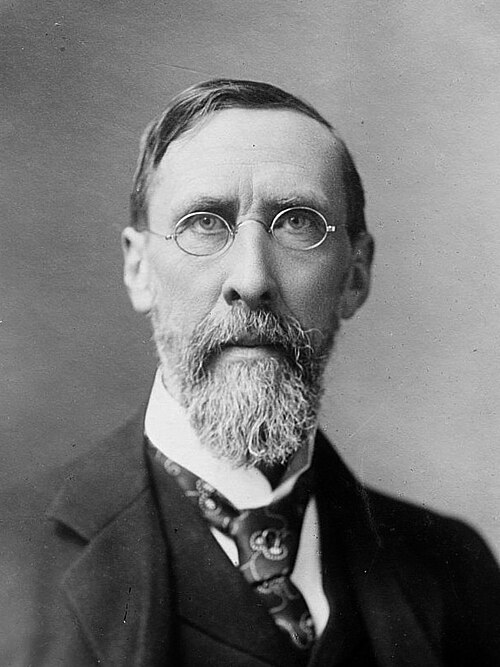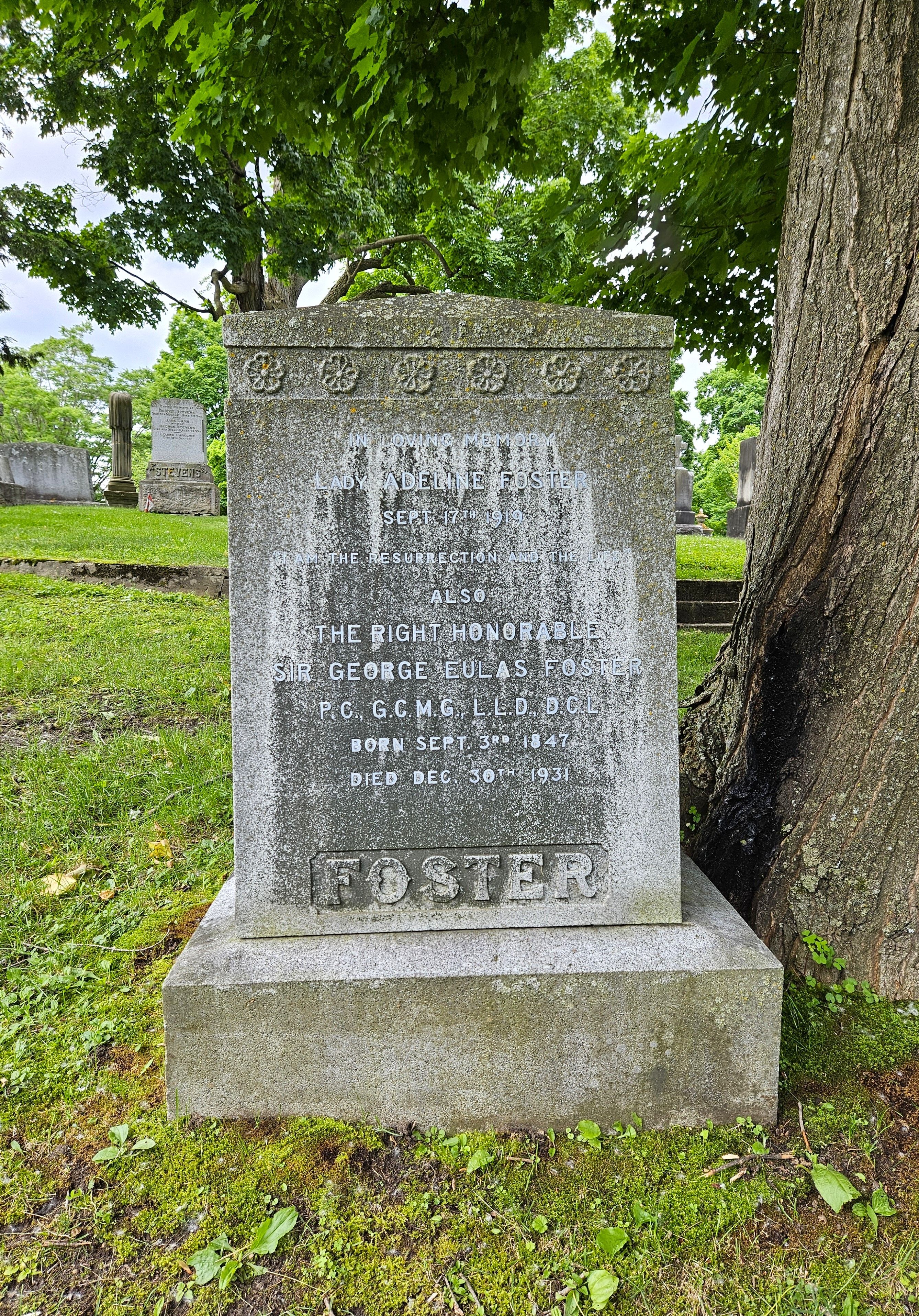
Sir George Eulas Foster: Architect of Canadian Policy and Empire Visionary
Sir George Eulas Foster
Section 22, Lot 15 NW – Beechwood Cemetery
Born on September 3, 1847, in Carleton County, New Brunswick, George Eulas Foster rose from modest beginnings to become one of the most enduring and respected statesmen in Canadian history. Over a career spanning nearly four decades, he played a defining role in shaping Canada’s financial policies, international identity, and political trajectory during a time of national consolidation and global upheaval.
Foster’s early life was steeped in learning and leadership. After earning his Master of Arts from the University of New Brunswick, he undertook postgraduate studies in Edinburgh and Heidelberg, where he cultivated both his classical education and international worldview. Returning to Canada, he served as a professor of classics and later as principal of the Provincial Normal School in Fredericton. His intellectual discipline and commanding oratory soon drew him into the national political arena.
In 1882, Foster was elected to the House of Commons as the Conservative Member of Parliament for Kings County, New Brunswick. His rise was swift. By 1885, Sir John A. Macdonald appointed him Minister of Marine and Fisheries, entrusting him with a portfolio vital to the economic health of the Maritimes and the country. Foster modernized Canada's fisheries sector and helped solidify key bilateral agreements that protected Canadian interests.
Three years later, Foster was named Minister of Finance, assuming responsibility for the fiscal direction of the nation. At a time when Canada was industrializing and expanding westward, he became a chief steward of the National Policy, using tariff protections to bolster domestic industries and infrastructure. His budgets were admired for their restraint, foresight, and responsiveness to the challenges of a young but growing economy.
Though his initial ministerial tenure ended with the Conservative defeat in 1896, Foster remained a central force in party politics. It was during this year that he famously coined the term “splendid isolation” to describe Britain’s foreign policy - a phrase that quickly took hold in political circles and appeared in British and international newspapers, further highlighting Foster’s rhetorical flair and international relevance.
With the return of the Conservatives to power in 1911 under Sir Robert Borden, Foster was appointed Minister of Trade and Commerce, a role he would hold through the tumultuous years of the First World War and the difficult transition to peace. He guided Canada’s wartime economic mobilization, supported Canadian business abroad, and resisted American encroachment on Canada’s trade sovereignty. Under Foster’s stewardship, Canada solidified preferential trade relationships within the British Empire while cautiously asserting its independent voice.
Foster’s influence extended well beyond Ottawa. In 1912, he was knighted, becoming Sir George Eulas Foster, K.C.M.G., in recognition of his service to Canada and the Empire.
Four years later, in 1916, he was appointed to the Imperial Privy Council, joining a select group of Canadians to receive the title of “Right Honourable” - a rare distinction typically reserved for prime ministers and governors general. The honour acknowledged his stature as a senior statesman and his international contributions on behalf of Canada.
His legacy grew further when he was named as a Canadian delegate to the Paris Peace Conference in 1919, where he helped negotiate Canada’s role in the Treaty of Versailles and in the formation of the League of Nations. At these forums, Foster stood as a symbol of Canada's growing maturity as a global actor, advocating for peace while defending the country’s interests as a self-governing Dominion.
Though he never led the Conservative Party, Foster was widely regarded as its intellectual backbone - a policy strategist, economic realist, and diplomatic tactician whose counsel was sought by every party leader from Macdonald to Meighen. He shaped generations of policy thinking in finance, trade, and foreign affairs.
Sir George Eulas Foster retired from active politics in 1921 after nearly 40 years of parliamentary service. He passed away on December 30, 1931, at the age of 84. He was laid to rest at Beechwood Cemetery, in Section 22, Lot 15 NW, among the nation-builders whose vision carried Canada from colony to confident partner in world affairs.

Today, Foster is remembered as a principal architect of modern Canadian governance - an educator turned statesman, a protector of national industry, and a voice for Canadian sovereignty within the British Empire. His story is not just one of public service, but of national evolution. His legacy endures in the institutions he helped shape, the policies he championed, and the nation he helped define.

